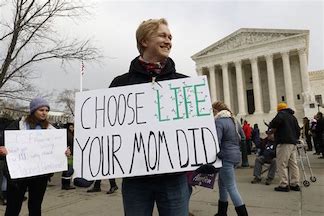In June of 1940 the German Wehrmacht defeated France with a display of power (and, on the French side, folly) that shocked the world. As much as the victory encouraged the Nazis and thoroughly deflated French morale, it also gave birth by the middle of 1941 to armed opposition, famously known as the French Resistance or simply La Résistance.
The daring and nobility of the Resistance, men, and women of all walks of life provide a lesson for all freedom-loving peoples. Not only did its members come from various levels of society, they held sometimes widely differing beliefs: Roman Catholics, Calvinists, and Communists, individuals who might have found it difficult to exchange a word in peacetime, who suddenly banded together against a common menace.
Contemporary America and, indeed, the West, in general, have witnessed over the last few decades a sad decline in meaningful literacy, seen partly in a widespread ignorance of history. There is good reason to believe that, if quizzed, very few people would actually know what “French Resistance” means. If I call it famous, I am probably revealing more about my age and interests than about common knowledge.
But life has its ironies. Ignorant as people may be of the most famous twentieth-century example of resistance, the expression has gained a new currency in the charged political climate of America 2017. The amalgamation of citizens calling themselves the “resistance” may, like the genuine article of 1941, count in its ranks a fairly wide cross-section of the population socially and economically; in fact, I’m sure it must. Yet, in contrast to the French, the creedal differences were simply never there.
What is this new resistance? Just this: a disgruntled pack of leftists who will do everything in their power to discredit the legal election of Donald Trump verified earlier this year, just as every election in the history of our country has been, by the Electoral College. They try very hard to mimic the brave men and women of France—who, let it not be forgotten, were struggling against an ancient foe that had occupied their country—but apart from occasional hit-and-run tactics, the similarities evaporate.
The new resistance’s preferred methods of warfare are rioting, rudeness, and, in some notable instances, physical assault, serving to prevent the “enemy” from exercising rights of free speech and association necessary to civil discourse.
The effects have been spectacular at times: at Berkeley, Middlebury, Claremont, and assorted “safe” havens for campus leftists. Logically, college professors are the biggest culprits in stamping this campus bullying with their seal of approval. In addition, the sometimes tacit, sometimes explicit endorsement of public figures has lent the new resistance a degree of respectability it would never have acquired in a sane world, Hillary Clinton, slinking back into the limelight, declared early in May, “I’m now back to being an activist citizen and part of the resistance.” The words “citizen” and “resistance” were never so badly used.
In spite of the comic relief Mrs. Clinton unwittingly injected into the movement, the resistance has been an ugly business. With virtually no voices of consequence in the mainstream media to underscore its violent tendencies, it became, as I fear it was intended to be, a ticking time bomb, predictable only in the certainty that it would sooner or later explode. Beyond the broken glass, the minor arson, and the roughing up of an “unacceptable” speaker or two—all deplorable—there was always the possibility of something more violent occurring.
It’s here that the chosen label, “resistance,” becomes interesting in a rather macabre way. The French during the occupation detonated booby traps, disrupted communications, and, since they were dealing with an invader, killed Germans. However different the situation in America is today, is it really so hard to believe that someone, inspired by the notion that Donald Trump is a little more than a foreign surrogate occupying the oval office, might conclude that what a real resistance needs is an assassination?
Think what you will, attempted assassination has now occurred. On June 14th, an aggrieved leftist and supporter of Bernie Sanders, James Hodgkinson, opened fire on a group of congressional Republicans practicing baseball in Alexandria, Virginia, seriously wounding House Majority Whip Steve Scalise (Republican, Louisiana). Hodgkinson’s motives are not in question. As a USA Today headline put it, he “expressed rage over Republicans.” A photo of him from April shows him picketing a post office and holding a sign declaring “Tax the Rich Like Congress did for 70 Years Till Reagan’s ‘Trickle Down’ We Need ‘20 Brackets – $20 Million.’” On Facebook he had some fascinating posts, stating “Trump Has Destroyed Our Democracy” and “Trump is Guilty & Should Go to Prison for Treason.”
Treason, a word that has been on the lips of many these past few months, is a serious matter which may be used both metaphorically and carelessly. But when people argue—with the conviction that the charge has a basis in law—that a traitor is now President of the United States, one should not be too surprised when they begin to act as if they are part of a “resistance” movement not unlike the one France saw in 1941.
Perhaps James Hodgkinson heard a few voices in his head telling him that a Republicans had to die for the country to survive; if he did, he was insane. But it’s worth remembering that other voices had his ear, real voices of commentators, politicians, and professors, some self-professed, others de facto members of the “resistance,” who in the current crisis have decided not to play by the old rules of civility. Hodgkinson heard them loud and clear.
Civility exists necessarily in a fallen world because so many ends and means are uncertain. The emergence over the centuries of congresses and parliaments testifies to this fundamental aspect of political life, evidenced in debate, discussion, and, as much as we lament it where great matters are at stake, compromise.
The new resistance’s chief assumption—echoed in college classrooms, on Facebook pages, and even on the hustings (albeit four years before the next presidential election)—is that certainty is their sole property; the shooting in Alexandria offers evidence of how far some in their numbers are willing to go to establish their ownership of politics. The big question posed by the event is no longer how far they will go to impose their will on people once regarded as the opposition but now seen as enemies, but, instead, how often such violence will happen.














